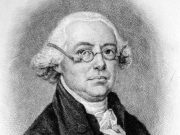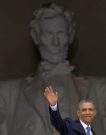Thoroughgoing philosophical skepticism undermines liberty by denying that law can be reasonable, and that justice can be known.
The Permissive Natural Law
Brian Tierney succeeds in his own aims for Liberty and Law: The Idea of Permissive Natural Law, 1100—1800. In his introduction, the noted Cornell medievalist openly admits that this book is “deliberately more descriptive than analytical” and says its chapters should not be read as “a continuous narrative” but as “a series of studies, focused on a common theme and intended, hopefully, to enhance our understanding of its scope and significance.”
What Liberty and Law achieves is nothing short of remarkable: it follows the thread of permissive natural law through 700 years of intellectual history. Having written on Rights in the Law myself, I was astonished to learn as much as I did from this book. Indeed, I have yet to digest all I hope to learn from it.
Giving ample room for my own deficiencies, I can still say the book’s structure is part of the problem. Though a chronological ordering is eminently defensible in a work of intellectual history, I wish Tierney had given us, if not more analysis, then at least a schema to help us process the importance of his findings.
That said, this review has a straightforward goal: To persuade you to that this is the kind of book that deserves serious attention.
So what is permissive natural law? It varies from author to author within the tradition, but here’s the basic insight: There are laws whose basic function is to create a realm of genuine freedom. Natural law can do more than just command or forbid. Law is not, contra Hobbes, merely and only a fetter. Law can also permit.
Permissive natural law can provide for a defense of individual rights against tyranny, and it can specify indifferent acts (morally neutral acts, like driving on the right side of the road) that can be appropriately subject to positive law. Far from being law at the margins of life—obsessed about unimportant, even trivial, stuff—permissive law deals with the bulk of human activity. For example, though natural law says all things are held in common, permissive natural law allows for the creation of property rights.
Importantly, the doctrine of permissive natural law holds that permission can properly be called an act of law. Not everyone thinks so, of course. Samuel von Pufendorf thought law permitted things by not legislating against them. Permissive natural law, by contrast, says law can legislate an actual permission. Jean Barbeyrac makes this point explicitly: “Permission is as real an effect of the law . . . as the strongest and most indispensable obligation.” [Emphasis in original.] Christian Wolff offers
the homely example of a fishing permit. The permit does not oblige anyone to fish or not to fish but it gives a right to fish within the restrictions of the law to anyone who wishes to do so.
Permission is rich in its variety. Sometimes a lesser wrong is permitted to prevent a greater one; sometimes a legal penalty is removed but the moral guilt remains; sometimes something indifferent is permitted, but not protected, and sometimes it is both permitted and the freedom to do what is permitted is also enforced.
These distinctions may seem like unimportant, unnecessary, or uninteresting medieval minutiae, so let’s gesture toward some possible applications of Liberty and Law’s findings to our present-day concerns. If you think my ideas are inadequate, then tolle, lege: Take up and read, and then help the rest of us digest this important book.
For now, consider my attempts. Take judicial activism. Conservatives champion Thomas Aquinas as a solution to activist judges—but if Tierney is right, he may be part of the problem. That’s because Aquinas avoids permissive natural law, unlike his predecessors. Tierney comments that Aquinas’ teaching
was based on two themes that recur at various points in his work—the great diversity among human individuals and societies, and the indeterminacy of the primary precepts of natural law and of rules derived from them.
Appealing to diversity and indeterminacy creates problems. “The difficulty here,” Tierney notes, “is that the argument seems to leave a whole body of law open to mere random or arbitrary decision.” The absence of permissive natural law in Aquinas helps me understand why people think virtue is more important to Aquinas than law. If, at the end of the day, the most pressing question is how to apply the underdetermined law to a particular expression of cultural diversity, then what’s most important is the wisdom and justice of individual magistrates doing the work of application, as opposed to a strict, originalist interpretation of the law itself.
Diversity and indeterminacy may favor judicial activism. Permissive natural law, by contrast, seems to favor federalism and local control.
Tierney goes even further when he says, citing Cicero, that “if various alternatives were really indifferent there could be no rational ground for choosing among them.” He does not abandon Aquinas, but he does say that “at times Aquinas’s argument seems to cry out for a doctrine of permissive natural law and natural rights to complete it.”
Take another example, nation-building. Permissive natural law raises questions about what laws we should champion in other nations. Should we attempt to replicate the U.S. Constitution abroad, trusting in local magistrates to apply the under-determined laws to the specific local customs? Or can we try another approach, namely, to frame permissive laws that establish what works in local associations, along the lines of Elinor Ostrom’s Governing the Commons?
And, of course, let’s not forget the nation we are trying to build—or just protect—here at home. If societies are diverse and laws indeterminate, then regulatory agencies may be the best solution to the problem. Permissive laws, by contrast, leave room for freedom and local control. I won’t even pretend to work out the specifics here. You can help with that, after you’ve read Liberty and Law.
Tierney shows how the language of permission finds its place in every century. For example, Immanuel Kant employs not just similar ideas, but even the same Latin words and phrases, as the 12th century Decretist named Huguccio—even though Kant wrote about 600 years after Huguccio did. The author quickly adds that Kant “most certainly” did not know Huguccio’s work, much less endorse it. Instead, “old ideas were incorporated into new philosophy.” But that makes Tierney’s discoveries all the more impressive.
The pages of this book teem with heretofore unexplored intellectual treasures. Sometimes 250 years of intellectual history are covered in a single footnote, as we see in note number 38 on page 317:
Wolff influenced Catholic teaching especially through the work of Luigi Taparelli d’Azeglio (1793-1862). . . . Pope Leo XIII in turn was a pupil of Taparelli and, in his great encyclical on social questions, Rerum novarum, he included the idea of a natural right (something the papacy had frowned on since the days of the French Revolution). For an example of Wolffian reasoning in modern Catholic legislation see the decree on religious freedom, Dignitatis humanae, of Vatican Council II, “[E]ach one has an obligation and therefore a right to seek the truth in religious matters.”
The historical discussions are philosophically interesting in their own right, especially when they highlight differences between natural law theorists. Wolff, Luigi Taparelli, Leo XIII, and Vatican II see obligation as prior to right. By contrast, Jean Barbeyrac, in at least one place, sees rights as prior to obligations. According to the latter, the law’s silence is a positive permission that imposes an obligation on others not to interfere, and—Tierney quotes Barbeyrac at this point—“this obligation arises . . . from a right inherent in him to whom the law gives a liberty of acting as he pleases.” Tierney notes how Barbeyrac’s position presents difficulties for standard interpretations of early modern Europe. His discussion also raises the question of who has the better theory.
Mercifully, this dense book is sprinkled with humorous comments. When discussing Marsilius’s Defensor Pacis, for example, Tierney says, “This section of the work—once dismissed by a modern editor as an ‘excrescence’—is the most important part for our purpose.” He quotes Mary Gregor on Kant: “Kant has never been accused of underestimating his readers, but he seldom treats them so harshly.” Tierney then adds, “She was referring specifically to the pages of the Rechtslehre where Kant discussed the origin of private property. Unfortunately those pages are the ones more relevant for the present inquiry.”
Toward the end of Liberty and Law, Tierney offers the following quote from G. K. Chesterton: “It is shorter to state the things forbidden than the things permitted: precisely because most things are permitted and only a few things forbidden.”
Let’s hope so.


